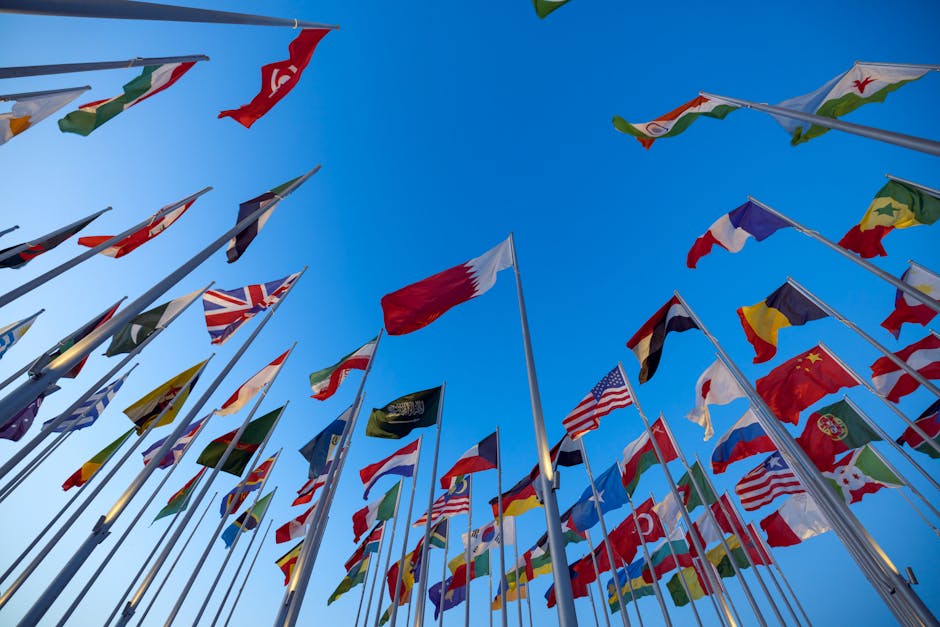Deciphering Political Dynamics That Capture Global Attention
Understanding the forces that shape political dynamics on a global scale can feel like attempting to untangle a web of competing interests, historical grievances, and shifting alliances. From economic sanctions to viral social media campaigns, politics today plays out in complex and interconnected ways, making it both fascinating and challenging to follow. But how do certain issues or events capture international attention while others remain local or ignored? To make sense of this, let’s break down some key factors that influence political dynamics and their impact worldwide.

The Role of Media in Amplifying Political Events
It’s impossible to talk about global attention without acknowledging the role of media, both traditional outlets and online platforms. News coverage has always shaped public perception, but the speed and reach of digital platforms have fundamentally shifted how stories gain traction. Think about the Arab Spring protests of 2010-2012, which were fueled by Twitter and Facebook posts that spread information far faster than state-controlled media could suppress it. A single video from a protest could galvanize international support or outrage within hours.
But there’s a double-edged sword here. While media can amplify issues deserving attention, it can also create echo chambers or push narratives based on selective reporting. For example, during the Russian invasion of Ukraine in 2022, western media largely focused on Ukrainian resilience and NATO’s response while Russian outlets framed it as a defensive measure against western encroachment. Both narratives captured different audiences' imaginations, highlighting how media framing affects not just what we see but how we interpret global events.
Economic Interdependence as a Catalyst for Global Attention
Nothing grabs international headlines quite like policies or events that disrupt economies. Consider how the U.S.-China trade war dominated discussions over several years. Tariffs imposed by either side didn’t just affect bilateral trade; they sent ripples across markets in Europe, Asia, and beyond. When two major economies clash, everyone feels the aftershocks, from rising consumer prices to strained supply chains.
Another example is the ongoing climate debate. Countries like Brazil and Indonesia often find themselves under scrutiny for deforestation practices because these actions impact global carbon levels, potentially harming economies reliant on stable climates for agriculture or tourism. Here, economic interdependence ensures that even local policies or practices can snowball into international controversies.
Historical Ties and Power Struggles
Global attention often gravitates toward regions with longstanding geopolitical tensions or colonial histories. Take the Israel-Palestine conflict: decades of unrest, combined with religious significance and Western involvement, keep it firmly in the international spotlight. Even small developments (a single airstrike or peace talk) are scrutinized because of their potential to shift the balance of power in the Middle East.
Similarly, post-colonial relationships continue to shape interactions between nations. France’s involvement in former colonies across Africa often draws criticism for neo-colonial tendencies, especially when military interventions occur under the guise of peacekeeping. These situations remind us that past political dynamics don’t simply fade away; they evolve into new forms that continue to demand attention.
The Influence of Social Movements
Grassroots movements have a unique ability to capture attention by highlighting issues that resonate emotionally across borders. The #MeToo movement is an excellent example, it began as a response to sexual harassment but quickly became a rallying cry for gender equality globally. Its success lay in its relatability; no matter where someone lived, they could identify with its message.
Younger generations have particularly embraced this kind of activism through platforms like TikTok and Instagram. Greta Thunberg’s rise as a climate activist demonstrates how individuals can leverage social media to elevate their voices from local concerns to global stages. What makes these movements so impactful is their ability to blend emotional appeals with data-driven arguments, creating both awareness and pressure for change.
How Leadership Decisions Shape International Focus
A single leader’s decision can draw immense attention, whether intentional or not. Former U.S. President Donald Trump’s decision to withdraw from the Paris Climate Agreement in 2017 sent shockwaves through diplomatic circles and environmental groups alike. It wasn’t just about America’s withdrawal but what it symbolized: a rejection of multilateralism at a time when cooperative action was deemed necessary.
On the other hand, leaders who embrace diplomacy can also steer narratives toward cooperation. Take Germany’s Angela Merkel during her tenure as Chancellor; her open-door refugee policy amidst the Syrian crisis sparked debates on humanitarian responsibility versus national security. While divisive domestically, Merkel's decisions placed Germany at the center of discussions about Europe’s future identity.
Leadership choices often become symbolic battles representing larger ideological divides (nationalism versus globalization or democracy versus authoritarianism) which keeps them in constant public focus.
Tying It All Together
When unpacking political dynamics that capture international attention, no single factor operates in isolation. Media amplifies events based on framing choices; economic ties ensure mutual dependencies; historical contexts fuel tensions; grassroots movements give voice to shared struggles; and leadership decisions set the stage for broader debates. Understanding this interplay helps us see past headlines into underlying causes and perhaps even predict which issues will dominate next.
Whether it’s following election results in Brazil, analyzing economic policies in India, or monitoring protests in Iran, staying informed means paying attention not just to what is happening but why it matters globally. This perspective transforms politics from an overwhelming stream of information into something you can follow with insight and clarity.
This article was generated by AI